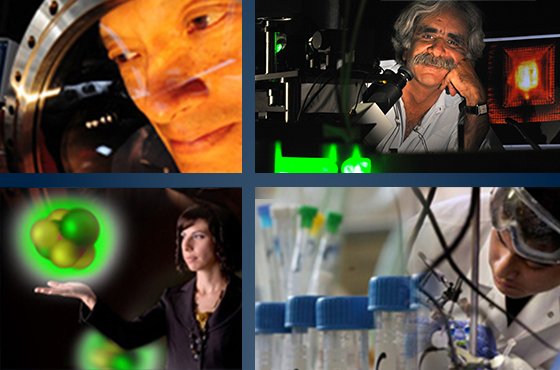Preparation Courses
Chem 1P: Preparation for Chemistry
Year One
Year Two
Chem 5: Scientific Computing Skills
Years 3 and 4
Chem 125: Advanced Organic Chemistry
Chem 128: Introduction to Chemical Biology
Chem 131B: Molecular Structure and Elementary Statistical Mechanics
Chem 131C: Thermodynamics and Chemical Dynamics
Graduate Courses
Chem 201: Organic Reactions Mechanisms I
Chem 202: Organic Reaction Mechanisms II
Chem 203: Organic Spectroscopy
Search by topic across all courses.
Using our search page (http://chem.open.uci.edu), you can find not only exactly the portion of a video that contains the explanation of a concept or a worked example by name, but for General Chemistry, we also provide associated information from OER textbooks. Sometimes, you will also find sample practice problems and their solutions.
1. What is the OpenChem initiative? OpenChem extends to an entire curriculum the benefit we have seen since 2009 from the open and free publication of individual chemistry courses. Originally, MIT planted the idea of making high-quality educational resources universally available and the advent of MOOCs further developed this concept by providing instructional pathways through individual courses at scale. However, MOOC contents usually are not available for re-use by other instructors, so UCI Open's contribution is not only to make chemistry resources available to learners, but to institutions and individual professors for their own teaching, as well.
2. How do I find a topic within a video or within a course? You can search by topic across all course using our search page. The results page will display the portion of a video that contains the explanation of a concept or a worked example by name. Particularly for General Chemistry, we also provide associated information from OER textbooks. Sometimes, you'll also find sample practice problems and their solutions.
3. What about labs? Homework? Readings? Hands-on laboratory practice and feedback on homework assignments are certainly important parts of the educational experience. While UCI chemistry students have access to high-quality physical laboratories and graded homework assignments, we count on institutions that adopt UCI Open materials for part or all of their curricula to provide those services to their own students. In addition, for several of the OpenChem courses we provide information about textbooks available from commercial sources (publishers) that students can purchase if they wish to follow along with homework assignments and reading.
4. Which courses are included in the UCI OpenChem initiative? OpenChem features all the required lecture courses that a UCI undergraduate needs for the chemistry major. A number of electives and graduate courses are also included. The full list appears on the left side of this page with the courses listed according to their position in a typical undergraduate learning sequence for chemistry majors.
5. Why is UCI offering its Chemistry lectures for free? There is a bit of history, here... In 2009 we filmed the first quarter of Organic Chemistry (CHEM 51A) taught by Professor James Nowick. Because the lecture videos were so useful for UCI students missing a lecture or wanting to review the content for an exam, Professor Nowick became interested in publishing more of his course lectures. We were able to keep the marginal cost of producing additional videos very low by using the internet and YouTube to host and distribute the content. Professor Nowick's enthusiasm increased further when he realized he was supporting a global network of learners, which led to a full departmental commitment in 2012 to publish all the UCI undergraduate courses through UCI Open (then OpenCourseWare).
6. Okay, but, really, why is it free? Beyond the initial setup and fixed infrastructure costs, the marginal cost of adding lecture videos is very small. In return, by licensing the content under Creative Commons (CC-BY-SA 3.0, attribution required, share-alike), UCI contributes to global chemistry education as well as helps its own students by allowing them to review lectures. In addition, hosting the videos on YouTube under CC licensing eliminates the need to host them locally behind a password. Finally, making the content open allows other institutions and professors to use some or all of the videos in their own teaching (without even having to contact us for permission) thereby effectively and efficiently fulfilling our public service mission as a land-grant, public university.
7. UCI is a member of Coursera. Why aren’t you offering these courses on a MOOC platform? We think that Coursera is a great platform, but it may not be the optimal place for making educational resources available for use by other universities or community colleges. Because UCI Open video lectures are published with an open, Creative Commons license, other institutions may incorporate one, two or all of the video lectures in their own courses without needing to seek our permission in advance. Permission is granted through the provisions of the Creative Commons licensing.
8. Can I get a degree from UCI through OpenChem? Sorry, but the answer is no. While our goal is to promote learning chemistry, the University only awards degrees to matriculated students.
9. Can I get university credit for studying Chemistry through OpenChem? At this time, UCI does not award university credit for OpenChem. However, if another institution chooses to use the videos as part of their own chemistry courses, it may be possible to earn official credit from that institution.
10. Will the video lectures be captioned? Yes! All the videos are captioned (which is done automatically through YouTube) and many of them have had the captioning reviewed and corrected manually by people knowledgeable about chemistry, which is necessary to ensure that chemistry terminology is transcribed correctly. Our goal is to have all the videos' captions reviewed in this manner.
11. Can we provide feedback? Yes, there is a page on our website for comments: http://open.uci.edu/contact. You can also write us at open@uci.edu.


